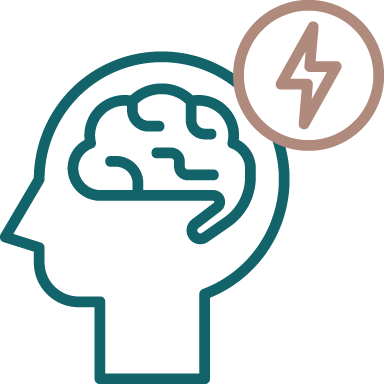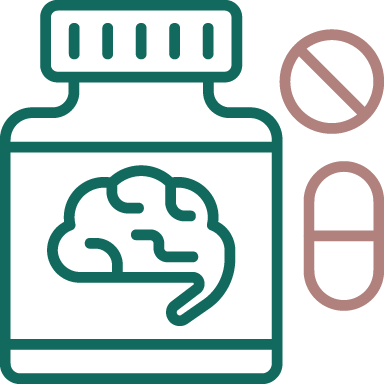Alzheimer's Disease
Can Alzheimer's disease be prevented?
Researchers studying Alzheimer's disease have identified several avenues that could help prevent or, more accurately, delay the progression of the disease. The studies conducted emphasise the connection between cognitive disorders like Alzheimer's and certain risk factors, such as cardiovascular problems, smoking, a sedentary lifestyle or poor eating habits. Preventing and identifying the early signs of a neurodegenerative disease is crucial as any neurons lost will be lost permanently and preventing the mass destruction of these neurons is essential, as their destruction is responsible for rapidly worsening clinical deficits.
The importance of early clinical-biological diagnosis.

Neuropsychological tests
are good indicators.
MRI (magnetic resonance imaging)
measures hippocampal atrophy. Hippocampal atrophy is often one of the first signs of Alzheimer's disease. It is this atrophy that causes the memory loss and disorientation characteristic of the disease. The hippocampus is a biomarker because it is one of the markers of the disease in its early stages.
An FDG (fluorodesoxyglucose) PET scan
(positron emission tomography) shows the deficient brain areas.
Lab results
show changes in levels of TAU and amyloid proteins in the CSF (cerebrospinal fluid), which are implicated in brain degeneration.
Preventative measures
Today there are 2 preventative measures available:
- Brain stimulation which, thanks to neuronal plasticity, can create new synapses and thus more or less compensate for those destroyed.
Maintaining and caring for your body
- Vascular protection: As is well known, this consists of controlling diabetes, hypertension and hyperlipidaemia, a Mediterranean diet and physical activity.












